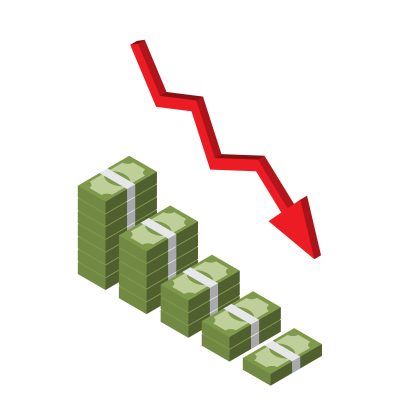To mark down your portfolio or not mark down your portfolio? That is a question many venture capitalists are grappling with right now.
But first, what does that mean? VCs keep a running tab of the value of each fund and entire portfolio based on the prior valuations each company raised at. The value of each company generally only gets updated when it raises a round at a new valuation, and firms typically do a full valuation audit at the end of each year.
While, yes, venture capitalists only have to audit the value of their portfolios once a year for their LPs, it’s generally considered good faith to do so if there is an outsized adverse event impacting a specific company or the whole portfolio.
As market conditions continue to get worse, and company valuations continue to fall, many VCs are sitting on portfolios with outdated and inflated valuations. I’d venture that it would be wise for investors to take a look now and avoid waiting until the end of the year.
But many investors haven’t. Some don’t want to show their losses to their LPs, while others think some of the companies may grow into their valuations by the end of the year. Others … it’s unclear why.
Rob Go, a co-founder and partner at NextView Ventures, said that he’s noticed some of this hesitancy from other GPs and can think of a few reasons why firms may be avoiding the inevitable.
For funds that are hoping to head to the market to raise a new vehicle soon, Go said they may be trying to avoid marking down their portfolio so their track record looks more attractive.
“I also think that if you are a new fund that has shown amazing markups, and very little liquidity, there is more pressure to reserve your reputation with LPs,” Go said. “If you have no liquidity, you look really bad at that point.”
Susan Spears, an investment partner at Atento Capital, which is a part of the George Kaiser Family Foundation that invests in startups and venture funds, told TechCrunch that some venture firms — especially emerging managers focused on early-stage investing — honestly may not need to do it yet. Some have portfolios that may still be relatively insulated. But, she added, it’s never a wrong idea to check-in.
But if a venture portfolio does contain companies that are clearly overvalued, or maybe have conducted layoffs, investors really should be adjusting their portfolio’s valuation and should start being transparent with their LPs, both Spear and Go said.
“If there are clear indicators that the winners in your portfolio are no longer going to be winners, or their valuations will be substantially impacted by a down round or flat round, we want to know about that ahead of time,” Spears said. “We don’t want to read about that in the quarterly update.”
Spears added that it isn’t as if LPs aren’t watching what is happening in both the macro and venture capital markets right now. And they’re certainly aware of the changing market conditions. Attempting to cover up bad performance could hurt a VC’s relationship with its LPs down the line.
“I am a huge advocate of communicate good news fast and bad news faster,” Spears said. “A lot of fund managers are sitting on their hands because they are nervous on how to communicate to LPs. Be smart about it, but it’s more important to get it out there. We understand it’s a cycle and it’s going to be tough. We know that and we want to be partners with our GPs.”
While Spears said that having an overweight venture portfolio because of misaligned valuations isn’t detrimental to Atento, it can be for other LPs.
Kyle Stanford, a venture analyst at PitchBook, told TechCrunch that VCs not marking down their portfolio could make an LP look overallocated to venture, causing them to potentially avoid making new commitments.
“VCs should mark to market [the technical term for this process] their portfolio companies just for that reason, to allow LPs to better manage their capital and continue to put money to work in VC if they have it available,” Stanford said.
Avoiding it can create problems for founders too, Go said. He said some investors may avoid marking down their portfolio with the hope of finding ways to keep the companies at those inflated valuations. Because of that, they may look to add predatory deal terms to be able to de-risk an investment at what they know is a lofty price tag.
Go said that this is something SoftBank has done in the past — to its own detriment.
The summer break is over and VCs that haven’t marked down their portfolio yet should probably start making moves. With Q3 data fast approaching, and the end of the year just months away, they can’t sit on the sidelines and cover their losses forever.
“At some point you look like an idiot,” Go said. “Everyone is sort of in the same boat. You can mask it for a long time, but not forever.”
